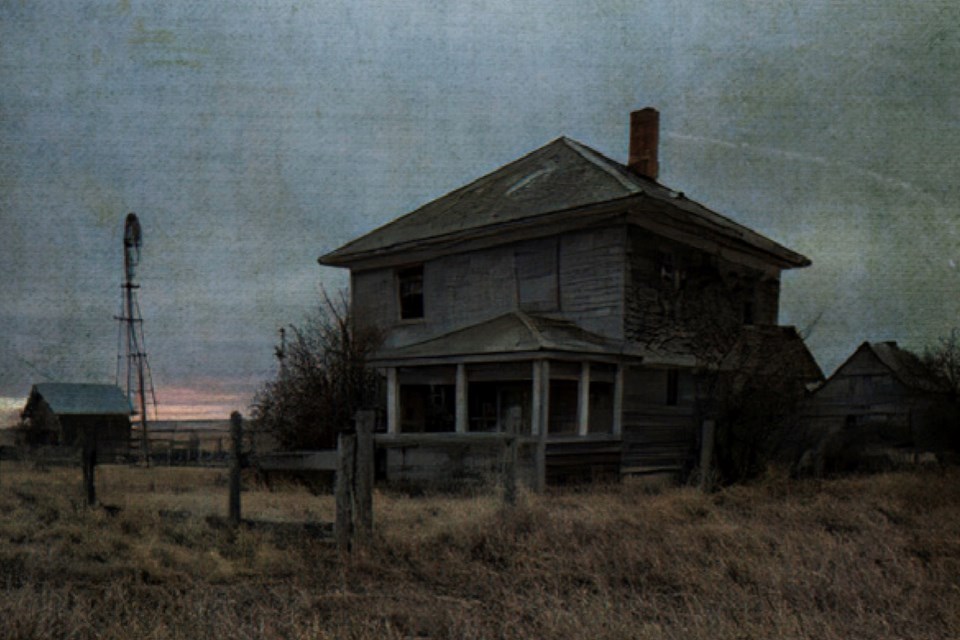Mason’s Jar, John Jantunen’s latest novel from ECW Press, is hailed as an electrifying mash-up of the western, sci-fi and horror genres, and it’s set within a not-too-distant future in North Bay. The writer lived in town for a few years with his wife and two kids, so he knows the area well, and his experiences here inspired much of the book.
The novel also gave Jantunen a vehicle to discuss many pressing social issues. Lack of housing, difficult access to mental health services, rampant opioid addiction and a changing climate all play out within the story.
Within the world of Mason’s Jar, a highly addictive drug, Euphoral, has become epidemic and withdrawal leads to violent psychosis. What happens when the supply starts to run dry? Dangerous anarchy, with gangs, revenge, and fear running rampant.
It’s a scary world depiction, although one not too far removed from the trouble’s of today. Jantunen noted “there’s no space for treatment” for so many addicts, and with the rising number of homeless, more will turn to drugs, and the negative cycle will accelerate.
He recalled that a few a houses down from his “there was kind of a one stop shop for drugs, and we saw addicts in withdrawal, banging on the door, and spending an hour or two just yelling and screaming and freaking out. Standing in the traffic and kicking over garbage cans.”
“What happens if the drug supply were to dry up for North Bay?” Mason’s Jar answers that question, and the answers are uncomfortable, with much “atavistic rage” driving the characters.
Jantunen now lives in Kingston, works at a homeless shelter, and knows firsthand how Canadian living in 2023 can be precarious for many. His family almost became homeless when they moved to North Bay from Capreol. Why? No where to rent.
This was during the pandemic when everyone seemed to be house hungrier than usual, and the rental spaces were so limited, he was lucky to find a place to hang his hat. It was close, and he knows too well, that if luck wasn’t on his side, a tent in the shrubs could have been his new reality.
He works with hundreds of people every day in Kingston, hungry for a meal, trying to escape the wildfire smoke, or cool down from jungle humidity. He knows many of those people were like him, those who couldn’t find a home, or couldn’t afford two grand a month for rent. Many were addicts. Many more will soon become addicts.
The downward spiral is cruel.
“There are horrific levels of drugs and drug addicts across the country right now, and you don’t really hear those stories in our literature.”
“I’ve never committed a crime,” he said, “but I have had a lot of experience with criminals in my life, and that’s just living in some of these poor regions. You know you just end up being neighbours with them and you talk with them, and you get to see these patterns emerging.”
The common element, Jantunen observed, “is mostly horrific abuse, starting when they’re very young, and that background is always informing their present.”
For the author, the challenge was to “create a story that incorporates all these elements, the social elements, the housing, the homelessness, and the drug addiction.”
The result is Mason’s Jar, a work Jantunen feels necessary for our times, as “a lot of our fiction ignores class, how poor people are paying the price for some of these drug policies that are enacted by our leaders who possibly have the best intentions at heart.”
“But the current policies are not helping these people, it’s criminalizing them,” he said. “You learn a lot from talking to your neighbours,” he added, and a lot of conversations from his North Bay neighbours found their way into his book. A few of his neighbours were fictionalized within the novel as well, so there is a lot of the city within Jantunen’s prose.
Despite the at times despairing themes, Jantunen – and Mason’s Jar – offers hope of change, of escaping “the black hole” so many are falling into. “I’m a very hopeful, optimistic person at heart. I still believe that where there’s life, there’s hope, and that’s kind of a common refrain throughout Mason’s Jar.”
Hope is an underlying theme throughout the novel, and change, after all “the line between being rich and poor in this country is very, very fragile. It’s very precarious.” And anyone can end up on the other side of that line, and when the balance tips, all manner of nightmares can materialize, as Jantunen aptly illustrates in Mason’s Jar.
David Briggs is a Local Journalism Initiative reporter who works out of BayToday, a publication of Village Media. The Local Journalism Initiative is funded by the Government of Canada.



